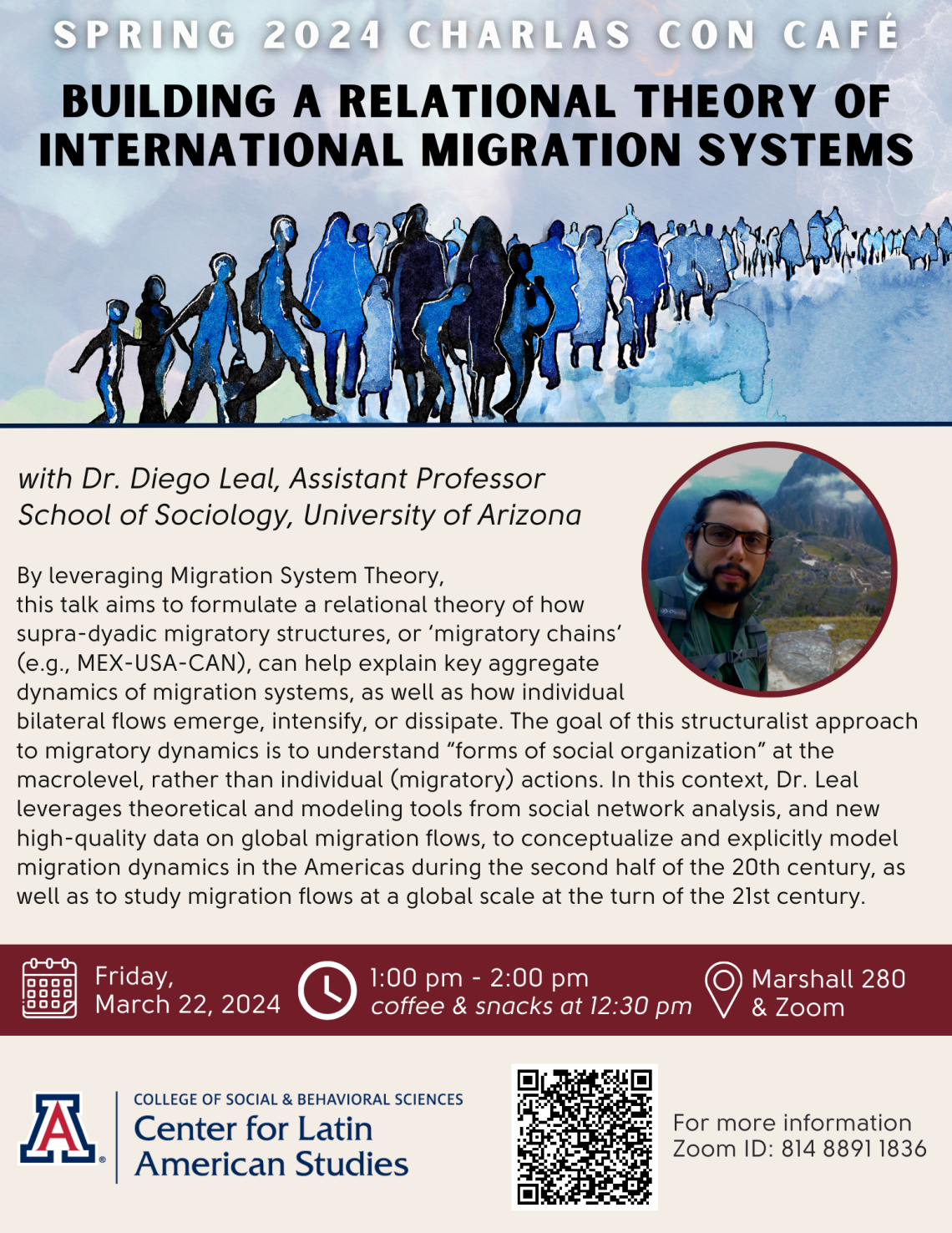with Dr. Diego Leal, School of Sociology, University of Arizona

When
Where
Center for Latin American Studies, Spring 2024 Charlas con Café – a weekly space to hear lectures from a wide variety of experts and discuss topics relevant to the Latin American region, Fridays from 1-2 pm (unless otherwise specified). Coffee & snacks starting at 12:30pm!
The international migration literature is overwhelmingly based on the study of dyadic or bilateral flows (e.g., MEX-USA). By leveraging Migration System Theory, this talk aims to formulate a relational theory of how supra-dyadic migratory structures, or ‘migratory chains’ (e.g., MEX-USA-CAN), can help explain key aggregate dynamics of migration systems, as well as how individual bilateral flows emerge, intensify, or dissipate. The goal of this structuralist approach to migratory dynamics is to understand “forms of social organization” at the macrolevel, rather than individual (migratory) actions. Such an approach to aggregate-level migration is irreducible to the study of individual behavior because individual migration behaviors are interdependent, which makes migration systems complex and adaptive structures. Migration Systems Theory’s core principle that any given flow in a migration system is, directly or indirectly, sensitive to changes in all other flows, provides a promising conceptual approach to understanding these relational dynamics. In this context, Dr. Leal leverages theoretical and modeling tools from social network analysis, and new high-quality data on global migration flows, to conceptualize and explicitly model migration dynamics in the Americas during the second half of the 20th century, as well as to study migration flows at a global scale at the turn of the 21st century.
This is a hybrid event. To join on Zoom, register here.

